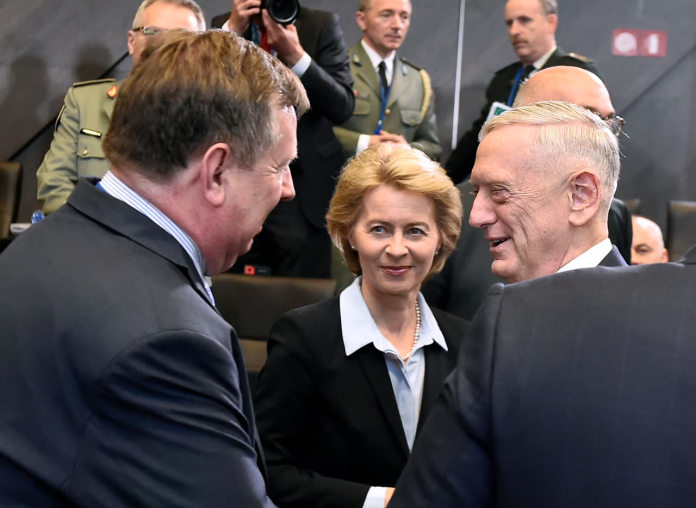As European Commission president-elect Ursula von der Leyen recruits potential candidates for her new team, she could face challenges on three key fronts, according to Euractiv.
Von der Leyen is expected to send a letter asking EU member states to nominate their candidates by the end of this week, with the aim of holding the first interviews around mid- to late August. Any consideration of personalities will take into account gender parity, political party affiliation and a balance between geography and priorities.
As during her first term, von der Leyen intends to ask Member States to propose a man and a woman to ensure gender balance in her new College of 26 Commissioners.
I want to choose the best who share the European commitment and, in terms of numbers, there will be parity between men and women.
The survey shows that many of the potential names currently being discussed in member states are male, with a few exceptions. One EU diplomat explained:
According to the treaties, member states need to provide a name – as in one – not two. Rest assured some might opt not to send two, as they have made their choice consciously and in accordance with what makes domestic sense for them, politically speaking.
As for the party affiliation of the future nominees, it is already clear that the conservatives from the European People’s Party (EPP) far outnumber the other parties. In other words, this is likely to be the most staffed EPP commission to date.
Political struggle
EPP chief Manfred Weber publicly supported the appointment of Lithuanian Foreign Minister Gabrielius Landsbergis as the next Commissioner. Member states have already begun haggling over portfolios, hoping to secure an influential post for their candidate. While these negotiations usually take place in the background, some EU leaders have made it clear what business they would like to see assigned to their candidates.
Italian Prime Minister Giorgia Meloni has openly stated that “Italy needs to be recognised for the role it deserves”, meaning “industry, competitiveness and cohesion” portfolios. Her Czech counterpart Petr Fiala said he needed “a strong portfolio, preferably an economic one.”
Other EPP leaders, such as Poland and Greece, will also expect a large portfolio to support her candidacy. In some EU countries such as Spain, where socialists rule, the choice of a commission candidate – in this case former energy minister Teresa Ribera – is often linked to a desirable portfolio.
Agriculture is expected to be another popular portfolio. The EPP has campaigned under the “farmers’ party” brand and has recently signalled that it is targeting this portfolio.
It’s a bit like the Hunger Games – there are lots of demands and ambitions everywhere, but some will need to face the fact that they will end up dead in the ditch with one of the less desirable portfolios, such as culture.
Von der Leyen is expected to simplify the structure of the next commission, moving from the current three levels of executive vice presidents, vice presidents and commissioners to only two. The EU executive is also considering how to distribute political priorities among its many directorates-general.
All of the above issues could complicate von der Leyen’s efforts to secure the endorsement of her candidates, as the charges will potentially be tougher than in the previous term. A gentleman’s agreement between the EU’s centrist parties to contain the extremes was struck during this week’s elections by the European Parliament of the chairmen and vice-chairmen of its committees.
But let’s see how much of a problem that cordon sanitaire becomes when it comes to the hearings. It’s possible that some grievances could resurface then, especially as they [the hard-right ECR] are the third largest group and will want to show some teeth once the parliamentary business kicks off in September.
